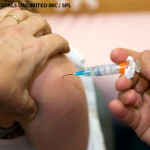 • The migration crisis and health in Europe
• The migration crisis and health in Europe
Providing preventive care to “irregular migrants”—that is, those who do not have full legal status—as opposed to waiting until a condition must be treated as an emergency, not only improves people’s health but could also save money. The European Union Agency for Fundamental Rights studied this in the settings of Germany, Greece, and Sweden. Providing regular healthcare for hypertension could save about 9% in a year, and 13% over five years, along with helping to prevent more than 300 strokes and more than 200 heart attacks per 1000 migrants in each country over their lifetime. The study also estimated that adequate prenatal care for all migrant women could help avoid four cases of low birth weight a year per 1000 population in Germany, five in Greece, and six in Sweden.
• From Vienna, Georg Röggla blogs about the migration crisis in Central Europe. He describes how the Austrian political elite and civil society reacted to the migration crisis.

• Two children have been paralysed in Ukraine due to polio. The first outbreak in Europe in five years is likely to spread further, the World Health Organization warns. It has been estimated that, in 2014, only 50% of children in Ukraine were fully immunised against polio. For 2015, this dropped further to 14% in children younger than 1 year.
 • Safety of HPV vaccine
• Safety of HPV vaccine
The bivalent HPV vaccine doesn’t seem to affect the risk of miscarriage in pregnancies that were conceived within 90 days of vaccination. This was found in a long term observational follow-up of 7466 women who previously participated in a Costa Rica vaccination trial and 2836 unvaccinated women. Still, some sort of a signal seems to be there; a genuine association cannot totally be ruled out, and should be further studied.
• Assisted dying in Canada
As 10 December approaches, when Québec’s new legislation on the right to die comes into effect, pharmacies prepare the kits needed to help patients die and palliative care centres unite in rebellion. As doctors and managers seem reluctant to carry out the new practice, politicians call on them to “re-examine their consciences.”
• Review of the Big Five
For a first class weekly review of the Big Five journals, turn to Richard Lehman’s ever popular blog.
Kristina Fišter is an associate editor for The BMJ.
